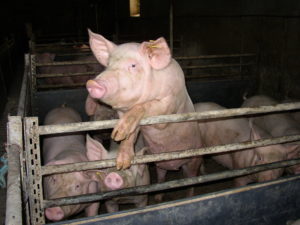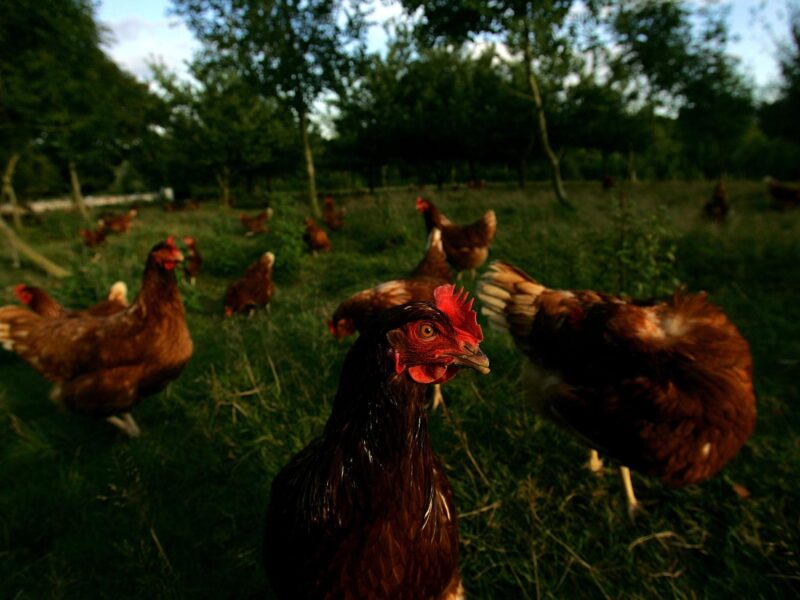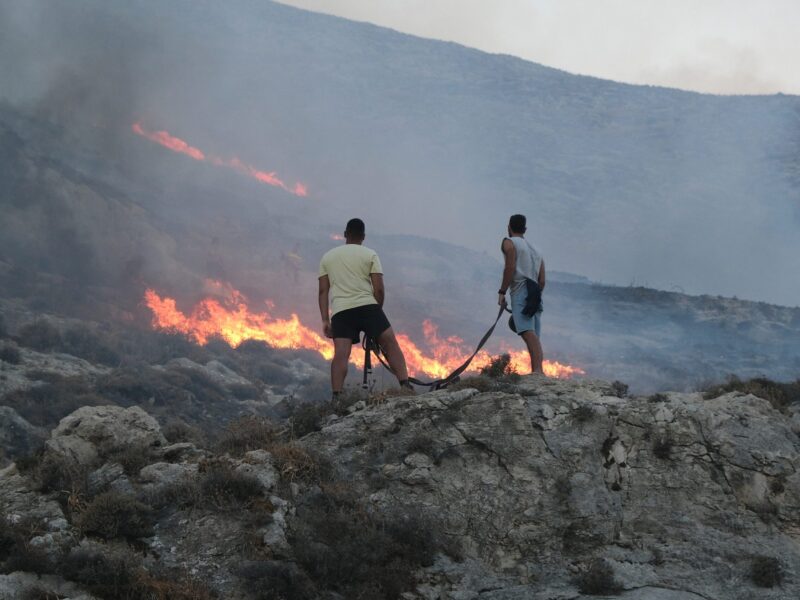
FUNDING DESTRUCTION

Intensively farmed pigs | Credit: Compassion in World Farming
Why is the World Bank’s Private Sector Arm investing in factory farming?
The power of investment banks to accelerate cruel and planet-destroying factory farming has again been highlighted recently following a massive injection of funding into intensive pig production in Vietnam.
As an animal advocacy organisation, Compassion is used to lobbying governments and food businesses to improve welfare standards, but much less visible but no less influential are the banks and other financial institutions who pour millions into funding the worldwide expansion of factory farming.
A key player is the World Bank Group’s private sector arm the IFC (International Finance Corporation). In recent years they have provided funding for several industrial livestock projects including the expansion of pig production in Vietnam, as well as intensive poultry operations in both India and Uganda.
In January, we learned that the IFC was planning to fund another pig production project in Vietnam. We, together with other animal advocacy organisations, wrote to the IFC urging them to drop funding plans.
However, just days ago, the IFC Board agreed to contribute a massive US$52 million to this project, more than half the total project cost of $90 million.
This huge expansion of pig farming is strongly suspected to involve intensive operations giving rise to serious animal welfare concerns. In intensive farms, the animals tend to be reared in barren, crowded pens and are often subject to painful mutilations.
Unfortunately, the publicly available information for the project doesn’t go into much detail. What it says is that the pig farming project in question would affect large numbers of pigs, as it proposes to increase the breeding herd “by 7,500 head and gilt raising capacity by 72,000”.

The critically endangered Pangolin | Credit: Uniquesafarieye
Planetary concerns
But why is the World Bank’s private sector arm proposing to invest in factory farming and how does this align with their stated mission to address global development goals and climate change?
Three of the farms supported by the investment are located in forest locations and one site includes critically endangered species such as civets, loris and pangolins. We know that crowded stressful conditions are a perfect breeding ground for pathogens to emerge and spread – such as the Swine Flu pandemic in 2009.
This investment into factory farming clearly undermines recent UN calls for development banks to invest in “one health” and pandemic prevention measures as recommended by the G20 High-Level Independent Panel on Financing the Global Commons.
Investing in intensive livestock will also heighten the global biodiversity crisis, as factory farming is a major driver of wildlife declines through habitat destruction including rainforest deforestation to grow animal feed crops.
Climate crisis
What’s more, factory farming also contributes to methane and, through its demand for huge amounts of cereals and soy to feed the animals, to carbon dioxide and nitrous oxide.
Animal agriculture is the leading contributor to methane emissions in both the EU and the US. The UN warns that we need to rapidly reduce methane emissions, including from agriculture if we are to meet the world’s climate change goals.
In 2021, the World Bank Group committed to “aligning financing flows with the Paris Agreement” and investments in factory farming clearly contradict that pledge.
Animal welfare
On animal welfare, this latest investment in Vietnam is highly unlikely to respect the IFC’s own Good Practice Note on improving livestock animal welfare. Nor is it likely to meet the international standards on pig welfare of the World Organisation for Animal Health (the OIE).
The European Bank for Reconstruction and Development (EBRD) requires clients to “implement national regulatory requirements… relevant EU animal welfare standards and GIP, whichever is most stringent” – the World Bank Group does not currently follow this leading practice.

Intensively farmed young pigs | Credit: Xiao Shibai / CIWF
Human hunger
Investments into factory farming don’t even make sense on grounds of food security: feeding vast quantities of grain to intensively reared animals is so inefficient it squanders enough food to feed 4 billion people a year. Without factory farming, we could feed everyone well. As it is, cruel animal production methods exacerbate human hunger.
Lagging behind
There is already a precedent from the private sector to adopting stronger sustainability safeguards. For example, Bank Australia, doesn’t lend to organisations that use intensive animal farming systems like caged hens, sow stalls, or export animals live. Meanwhile, Netherlands-based Triodos does not invest in companies that have factory farming as more than 5% of their revenues. Another good practice example is Rabobank, which encourages its clients to work towards meeting the FARMS Initiative’s Responsible Minimum Standards on animal welfare.
The World Bank, as a publicly funded bank, instead of falling behind, should be looking at best practices from the private sector.
As a public bank funded by governments that is supposed to support the public good, the IFC should be adopting best practice from the private sector – to avoid serious risks for climate, biodiversity and health – as well as for animals.
For the banking sector, continuing to fund factory farming cannot be seen as acceptable and undermines global sustainable development efforts, undermining the future for animals, people and the planet.
Please write to Richard Montgomery, the UK Executive Director at the IFC. Urge him to press the IFC to stop funding industrial livestock production and to engage in a far-reaching reappraisal of the kinds of animal agriculture that it finances.
His email is: eds03@worldbank.org
Grateful thanks to Peter Stevenson OBE at CIWF International for valuable help in preparing this article.





